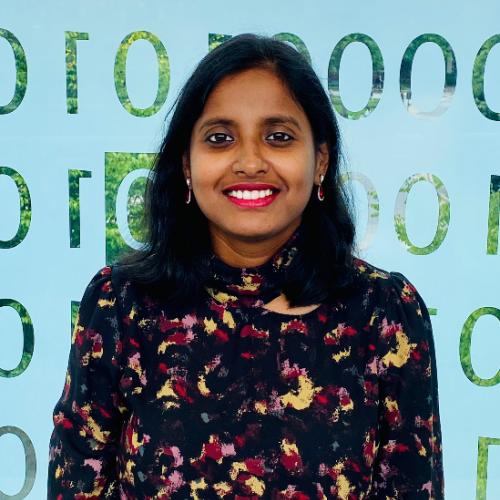
(she/her/hers)
Georgia Tech
Quantum Computing, Compilers, Architecture
Poulami Das is a Ph.D. Candidate at Georgia Institute of Technology. Her research focuses on developing compiler optimizations and software techniques to improve the fidelity of near-term quantum applications as well as designing architecture and system-level solutions for enabling fault-tolerant quantum computing in the future.
Poulami obtained her Master's degree from The University of Texas, Austin and Bachelor's degree from National Institute of Technology (NIT), Durgapur. She is a recipient of the Microsoft Research PhD Fellowship and Institute Gold Medals at NIT Durgapur. Her research has been recognized with the Best Research Award at the Design Automation Conference Ph.D. Forum, Cleaver Award for the most outstanding Ph.D. dissertation proposal in Electrical and Computer Engineering, Georgia Tech, Best Paper Award at Computing Frontiers, and has appeared in top architecture and systems venues like MICRO, HPCA, and ASPLOS.
Software and Architecture for Reliable Quantum Computing
Quantum computers promise computational advantages for many important applications, but noisy quantum devices lead to computational errors which limit us from running these applications with high fidelity. Quantum information can be protected by using Quantum Error Correction (QEC) codes but requires huge redundancy which may be impractical on Noisy Intermediate Scale Quantum (NISQ) systems with few hundreds of qubits. Instead, NISQ systems execute programs in the presence of noise and are simultaneously used to study QEC so that large-scale fault-tolerant quantum computers can be built in future.
I have developed software error-mitigation techniques for NISQ systems as well as architecture and system-level solutions for fault-tolerant quantum systems. My recent works ForeSight, ADAPT, JigSaw, and HAMMER are software frameworks that leverage compiler optimizations and output post-processing to improve the fidelity of near-term quantum applications. I have also designed LILLIPUT, a lightweight reconfigurable practical lookup table decoder, a logic that identifies errors in real-time, for small QEC codes. My work, the AFS decoder, focuses on the system level architecture and organization of decoders in large fault-tolerant systems. I also have interests in emerging technologies and traditional computer architecture.